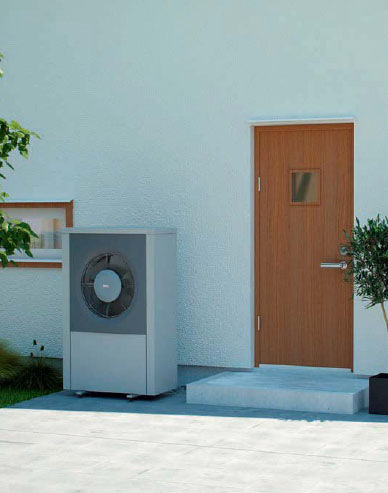Ask the experts
Essential advice on your problems with building, budgeting, DIY & planning from the most experienced names in the self build industry
SUSTAINABILITY
Is an air source heat pump suitable for my project?
I am really struggling to know whether I should run my wet underfloor system with an air source heat pump (ASHP). Does it save money over traditional methods? How do you heat water for other tasks in the house? Is the fan noisy? I am confused to say the least.
Underfloor heating (UFH) can be fed by conventional boilers, heat pumps or even a biomass boiler. Subsidies aside, an ASHP won’t necessarily save you money over mains gas given the greater initial costs. The Renewable Heat Incentive does offer a tariff of 7.51p/kWh though, which may sway you. For others the motivation lies in producing green energy and living more sustainably. Regarding acoustic performance, you don’t need to worry about the fans as they aren’t noisy and the units are normally located outside.
An ASHP is less efficient at higher delivery temperatures – so it’s more suited to supplying space heating than providing domestic hot water (DHW). However, it’s still more effective than electrical resistance heating (an immersion heater in a tank). I normally recommend underfloor heating when installing an ASHP as the heat output is lower than a radiator based system, so the pump does less work. Nonetheless, having UFH doesn’t mean you have to use an ASHP. If your reasoning is purely financial, I would recommend weighing up the installation fees, likely running cost and performance of particular models against the alternatives.

ICE ENERGY
SELF BUILD
What is the best way to waterproof my basement?
My architect and structural engineer have specified Stepoc blocks for my basement. I’ve never come across them, so I wanted to make sure they were suitable for this use. If so, how do you waterproof them?
Stepoc market their blocks as being appropriate for basement construction. For this purpose, they’re usually fitted with reinforcing steels and filled with concrete to your engineer’s specification, before being treated to prevent moisture ingress. However, basement design – including the waterproofing element – should always
be site-specific in order to properly account for and deal with the individual conditions on your site. Each project will have different issues relating to groundwater, soil permeability etc.